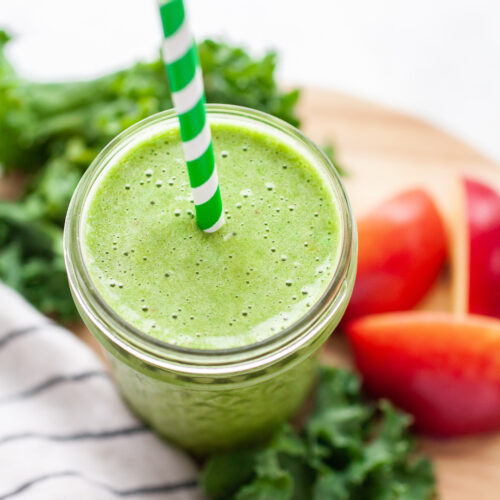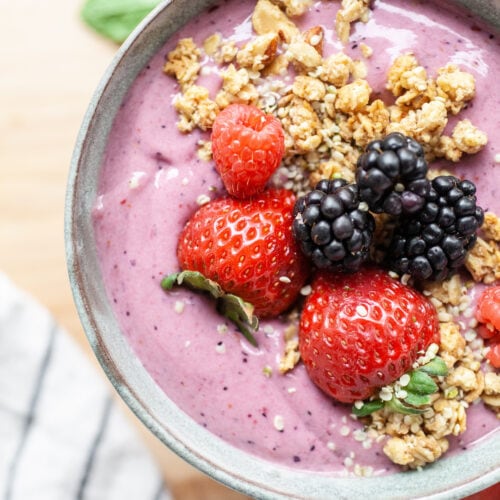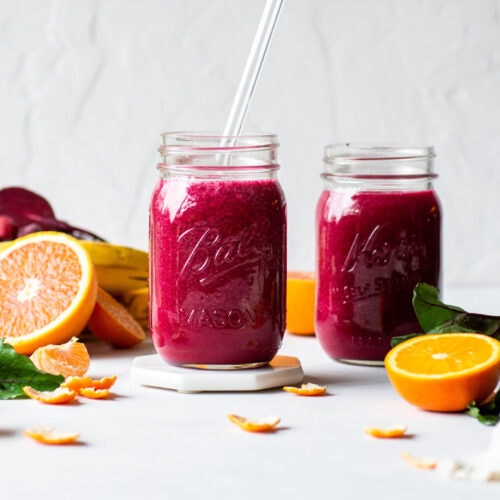The worst smoothie ingredients can sabotage a healthy drink. Whether they are loaded with sugars or high in calories, there are certain ingredients that shouldn’t be added to smoothie recipes. It is important to understand which ingredients to avoid in order to ensure smoothies remain a delicious and beneficial addition to the diet.

7 Ingredients You Should Never Put in Your Smoothie
1. Ice Cream
Ice cream can make a smoothie taste even better, but it’s best to avoid adding the frozen dessert to a smoothie unless you want a milkshake-like result. Although it makes a smoothie extra sweet and creamy, ice cream offers little nutritional value.
It tends to have high amounts of processed sugars and adds unnecessary calories. Instead, opt for a low-sugar, high-protein frozen yogurt or add heavy cream for a healthier alternative.
2. Hazelnut Spreads or Too Much Nut Butter
Avoid adding hazelnut spreads or too much nut butter to smoothies because they greatly increase the fat content and calorie count of the drink. Hazelnut spreads often contain added sugars, unhealthy fats, and other additives and preservatives that are best avoided. While nut butter has nutritional benefits like some protein and healthy fats, it’s important to keep the portion size added to the smoothie minimal.
The high sugar content in these spreads can cause blood sugar spikes and leave you feeling tired and hungry not long after. Consider whole nuts or adding chia or flax seeds instead, since they have a lot of healthy fat and contain large amounts of fiber.
3. Fat-free or Low-fat Flavored Yogurt
It’s common to put yogurt in smoothies to provide creaminess, but avoid fat-free or low-fat flavored yogurt because they often have more added sugar to compensate for the lack of fat. Some of these yogurts can have artificial sweeteners and other additives that can lead to highs and lows in energy and increased hunger.
Opt for yogurts that are low-sugar and high-protein. They can help you stay full longer.
Flavored Yogurt Alternatives for Adding to Smoothies
- Plain yogurt
- Greek yogurt
- Kefir
- Icelandic yogurt
- Almond milk yogurt
- Coconut yogurt
- Soy yogurt
4. Vegetable Juice
Avoid putting vegetable juice in smoothies as it can alter the texture and result in a stronger taste that might overpower the other flavors. Vegetable juice can not only have high counts of sodium and added sugar, but juicing also removes the natural fiber that provides digestion benefits. Instead of vegetable juice, consider cutting and blending whole vegetables to add lots of nutritional value and achieve a smoother consistency.
5. Sugary Fruit Juice
Fruit juice should not be added to smoothies because it is often high in sugar, contains preservatives, and typically lacks nutritional value. Adding sugary fruit juice to smoothies will significantly increase the calorie intake, without adding the beneficial fiber found in whole fruits.
The amount of grams of sugar in fruit juice varies widely, but on average, an 8-ounce serving of fruit juice contains between 20-30 grams of sugar. So, if you need a liquid base for your smoothie, opt for a milk option instead.
While 2% cow’s milk still has sugar, it also provides protein, vitamin A, vitamin D, calcium, potassium, and choline. There are also non-dairy options that provide more nutritional value than fruit juice.
6. Canned fruit
Due to its high sugar content, canned fruit is not an ingredient that should be added to smoothies. Even though canned fruit is cheap and easy to keep on hand, it is often loaded with syrups and preservatives that can lead to blood sugar spikes and energy crashes. In addition, the canning process strips the fruit of natural nutrients, so go for fresh or frozen fruit for a healthier choice.
Frozen fruit will last longer than fresh fruit while still adding nutritional value to your smoothies, and you can keep bags of it in your freezer. Adding frozen fruit can also make your smoothie thicker or creamy without having to add a liquid base.
7. Alcohol
Alcohol is a horrible ingredient to add to smoothies because it can contain empty calories, impair the absorption of nutrients, and cause digestive issues. With no nutritional benefit, alcohol adds empty calories which contributes to weight gain. Additionally, alcohol can interfere with enzymes and the transport systems that are responsible for absorbing nutrients, as well as irritate the lining of the stomach and intestines, causing bloating, gas, and nausea.
You may also find the alcohol diminishes the natural flavors of the smoothie, making it less enjoyable. So, unless you’re looking to make something more like a daiquiri, avoid adding alcohol to a smoothie and mixing up the distinction between a healthy beverage and a cocktail.





